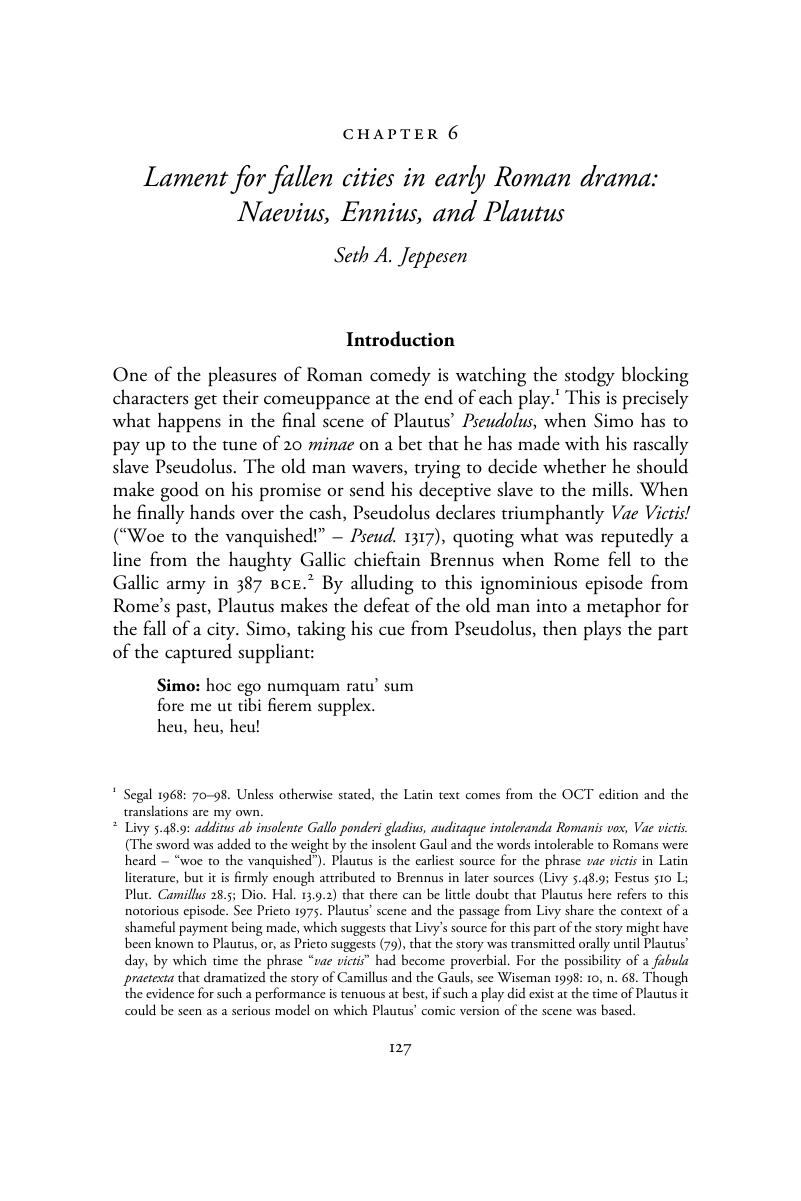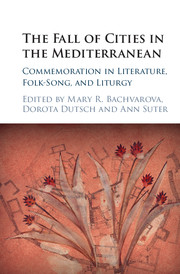Book contents
- The Fall of Cities in the Mediterranean
- The Fall of Cities in the Mediterranean
- Copyright page
- Dedication
- Contents
- Contributors
- Foreword
- Book part
- Map of the Mediterranean region
- Chapter 1 Introduction
- Chapter 2 The city lament genre in the ancient Near East
- Chapter 3 The destroyed city in ancient “world history”: from Agade to Troy
- Chapter 4 Mourning a city “empty of men”: stereotypes of Anatolian communal lament in Aeschylus’Persians
- Chapter 5 Seven Against Thebes, city laments, and Athenian history
- Chapter 6 Lament for fallen cities in early Roman drama: Naevius, Ennius, and Plautus
- Chapter 7 City lament in Augustan epic: antitypes of Rome from Troy to Alba Longa
- Chapter 8 The fall of Troy in Seneca’sTroades
- Chapter 9 How to lament an eternal city: the ambiguous fall of Rome
- Chapter 10 Messengers, angels, and laments for the fall of Constantinople
- Chapter 11 “A sudden longing”: lamenting the lost city of Smyrna
- Index
- References
Chapter 6 - Lament for fallen cities in early Roman drama: Naevius, Ennius, and Plautus
Published online by Cambridge University Press: 05 February 2016
- The Fall of Cities in the Mediterranean
- The Fall of Cities in the Mediterranean
- Copyright page
- Dedication
- Contents
- Contributors
- Foreword
- Book part
- Map of the Mediterranean region
- Chapter 1 Introduction
- Chapter 2 The city lament genre in the ancient Near East
- Chapter 3 The destroyed city in ancient “world history”: from Agade to Troy
- Chapter 4 Mourning a city “empty of men”: stereotypes of Anatolian communal lament in Aeschylus’Persians
- Chapter 5 Seven Against Thebes, city laments, and Athenian history
- Chapter 6 Lament for fallen cities in early Roman drama: Naevius, Ennius, and Plautus
- Chapter 7 City lament in Augustan epic: antitypes of Rome from Troy to Alba Longa
- Chapter 8 The fall of Troy in Seneca’sTroades
- Chapter 9 How to lament an eternal city: the ambiguous fall of Rome
- Chapter 10 Messengers, angels, and laments for the fall of Constantinople
- Chapter 11 “A sudden longing”: lamenting the lost city of Smyrna
- Index
- References
Summary

- Type
- Chapter
- Information
- The Fall of Cities in the MediterraneanCommemoration in Literature, Folk-Song, and Liturgy, pp. 127 - 155Publisher: Cambridge University PressPrint publication year: 2016
References
- 2
- Cited by



